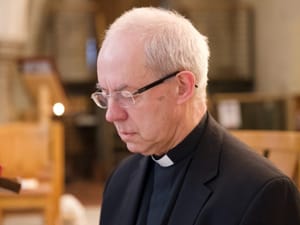It would be a mistake to think Justin Welby’s resignation following the cover-up of John Smyth’s abuse is just an Anglican problem. This is an issue that will have far-reaching implications beyond the Church of England. The fact that Smyth was a prominent evangelical who targeted some youngsters at evangelical youth camps means that some people will tar all evangelicalism with the same brush. It will touch wider evangelicalism, including among independent and non-conformist churches. Already the scandal is involving Anglican men who have some cross-over with the wider evangelical world, with Vaughan Roberts, Hugh Palmer and Rico Tice recently coming under pressure because of questions about what they knew and when.
But I’m not just talking about Anglican evangelicals who overlapped with us non-Anglicans. I’m saying that evangelical independency, itself, has its own skeletons in its own cupboards. One of the less desirable things about being Editor of ET is that people have a habit of telling me things I wish I hadn’t heard. I’ve been told of incidents of abuse within our own church circles, and of subsequent cover-ups. Nothing is documented or proven, so I can’t name names or publish the allegations. But some come from credible sources which I, personally, cannot easily dismiss.
Therein lies the problem. I hear things – fragments, rumours, bits and pieces. I don’t invite it, and I do as much as I can not to entertain it. But because of my role as Editor, people drop it in my lap. What am I to do with it? Without any solid evidence, I’m certainly not going to publish reports accusing people of abuse and cover-ups. And yet, as I say, some of it comes from credible sources which I have little reason to doubt. When I hear such things, and yet do nothing, am I guilty of turning a deaf ear? But ET simply doesn’t have the resources to seek corroboration or do any serious investigative journalism. I would urge victims and anyone with credible evidence to go to the authorities.
So, I am left talking in vague generalisations. And here’s one generalisation I have observed: evangelical churches and organisations are usually tempted to cover up allegations of abuse. The reasons for this failure are not always sinister. Sometimes, churches genuinely don’t know how to handle things. Sometimes allegations are simply that – allegations – and nothing has been proven. Sometimes, churches only receive fragments of information which don’t give the full picture. Sometimes, churches are genuinely trying to protect the dignity and privacy of the innocent. Sometimes, allegations only come to light after someone has died, and the alleged abuser is not alive to defend himself. Regardless of the reason, the choice to keep silent usually doesn’t end well.




